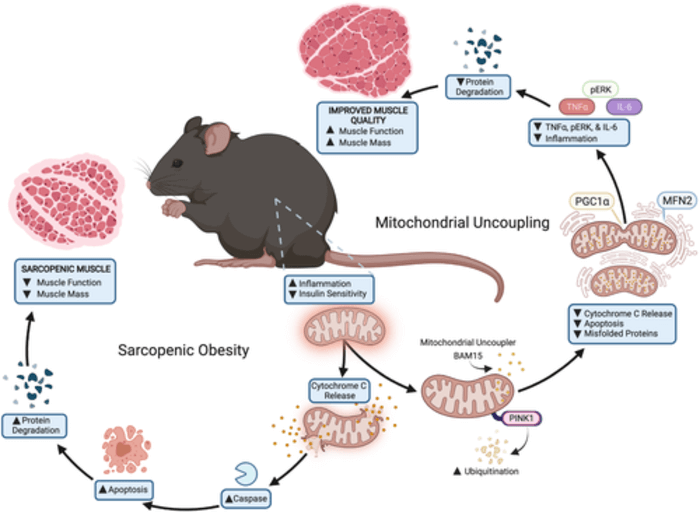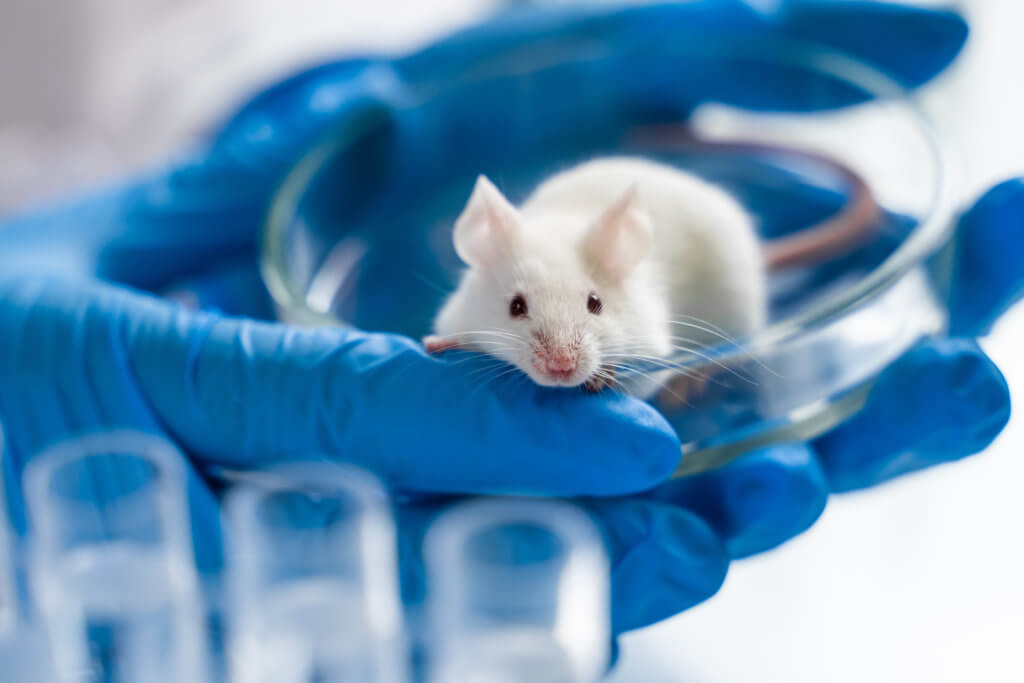Could scientists be on the verge of a true “fountain of youth” pill? Researchers say they have found a chemical compound that reverses the effects of aging and obesity in mice. Their study gives them hope of a “miracle drug” that could extend the lives of humans and help those struggling to maintain their health.
Scientists from the Pennington Biomedical Research Center in Louisiana say the compound, BAM15, shows a significant impact on the health of older and obese rodents. The animals shed weight, gained muscle strength, and increased their physical activity after taking the substance — which scientists call a “mitochondrial uncoupler.” The compound even turns fat back into muscle, reduces inflammation, and may combat frailty.
“Loss of muscle mass is typically not a concern in younger adults with obesity. However, as people age, that changes. Older adults with sarcopenic obesity suffer accelerated muscle loss. They become less active. As a result, they are at high risk for falls, stroke, heart disease, poorer quality of life and premature death,” says lead author and exercise physiologist Dr. Christopher Axelrod in a media release.
Sarcopenic obesity leads to age-related muscle loss, along with an increase in fat tissue. However, the new treatment offset this weakness in older mice — who were the equivalent of a 60 to 65-year-old person. Each mouse was also eating a high-fat diet to promote obesity.
Despite that, mice taking BAM15 lost weight and gained more muscle power. Researchers explain that the uncoupler works by making mitochondria, the power plants of cells, burn more energy.
“Typically, when you lose weight, you also lose muscle, and in some circumstances, you can lose a lot of it,” Axelrod explains. “In this study, the aged mice increased their muscle mass by an average of 8 percent, their strength by 40 percent, while they lost more than 20 percent of their fat.”
Replacing poorly working cell power plants
The study has important implications for improving the quality of life for older adults. In particular, it could help the rapidly growing number of overweight individuals lose weight and improve their overall health. Preventing, delaying, or reversing the causes and consequences of sarcopenic obesity is a medical “holy grail” — which would allow millions to live longer and healthier lives.
“These data highlight that mitochondrial uncouplers may play an important role in improving health span – the time a person enjoys good health – in advanced age,” says Pennington Biomedical Executive Director John Kirwan, Ph.D.

The study also reports that the medication replaced damaged mitochondria and reduced inflammation linked to muscle loss — key factors in healthy aging. Researchers caution that it’s still too early to know if this “miracle drug” will have the same impact on humans. However, the early results in mice are promising.
“Extending health span is even more important than extending lifespan,” Kirwan concludes. “Suppose you could add 20 or 30 years to a person’s life. What would be the point if their quality of life was awful?”
The findings are published in the Journal of Cachexia, Sarcopenia and Muscle.
South West News Service writer Mark Waghorn contributed to this report.











